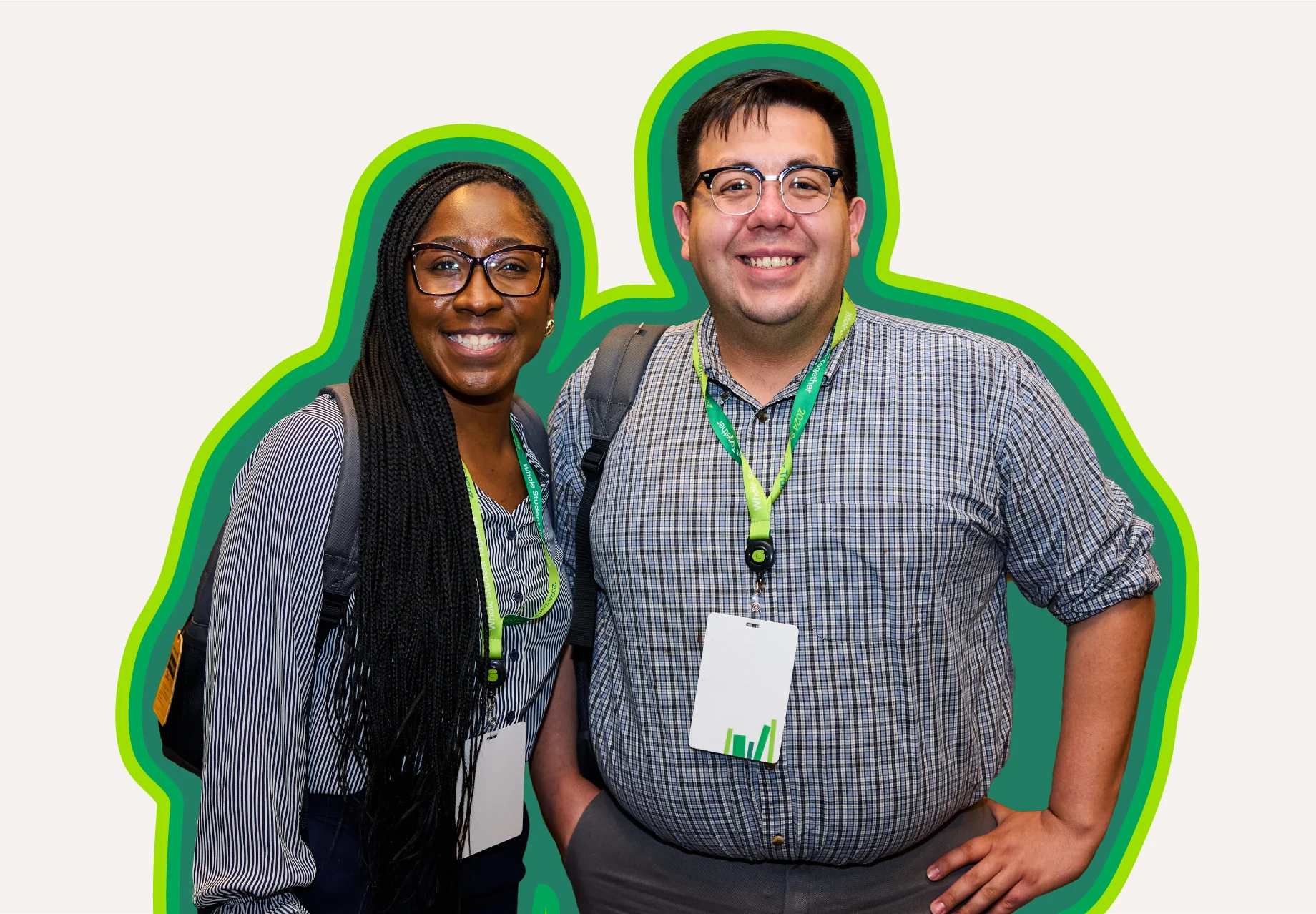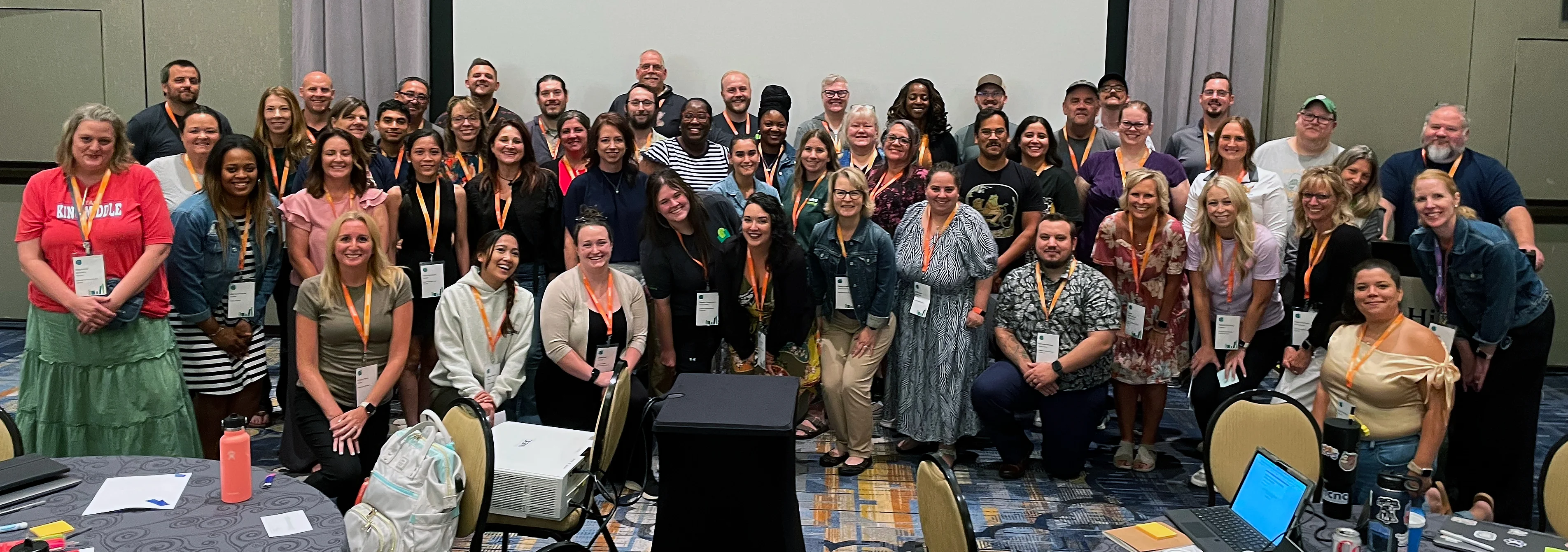
School leaders turn their vision into action at Gradient workshop
HOUSTON – With both hands on his backpack and a smile on his face, Abel Ruiz looked like an excited student leaving a great class.
"The juices are flowing," said Ruiz, Vice Principal at Aspen Ridge Public School in Fresno, California. "I can really start connecting all the different pieces and putting it all together now. I have a more coherent vision about what we’re all driving toward."
Ruiz was one of nearly 250 attendees—a mix of school leaders and dedicated Gradient Guides—at Gradient Learning’s Summer Leadership Workshop in Houston. This year's week-long professional development was designed to bridge the gap between theory and practice, offering actionable strategies and a collaborative environment where attendees could openly discuss challenges and share solutions.
The Gradient Guides, platform educator experts from each partner school, received separate training to prepare them to be on-site resources for their communities.
"I love the purpose and unified approach of Gradient and the level of commitment they provide us," said Erin Peach, an Instructional Coach and Gradient Guide for Second Street School in Frankfort, Kentucky. "This week brought me so much joy, and I know we’re all walking away with a vision of growth and learning for our students."
As the week progressed, a common theme emerged: a profound sense of renewal and excitement for the academic year ahead. For Ruiz, a former science teacher, the workshop reinvigorated his purpose of empowering teachers in his administrative role.
"My goal this year is to have our teachers do what they do best, which is teach,” he said.
Clarity and connection
The workshop’s focus on High-Quality Instructional Materials (HQIM) resonated deeply with Charmaine Johnson, Principal of John Rex Middle School in Oklahoma City, Oklahoma.
Johnson believes traditional teaching methods often fail to “humanize the student” by treating them as passive recipients of information rather than active thinkers.
“Through this curriculum, the student is respected as a thinker, and that’s huge,” she said. “Kids just want to be seen, they want to be heard, and they want to be acknowledged. And when they feel those three things, they'll run through a brick wall for you.”
Jason Bryant, Principal of King Middle School in Harrodsburg, Kentucky, called the workshop "the best training I've had with this organization." Bryant's insights focused on the reality of managing change, a process he's familiar with from his own experience. He learned the old adage, "go slow to go fast," when he faced resistance from staff and community members after previously implementing a new curriculum.
“The one commonality about change is you’re going to have pushback from somewhere,” Bryant said. “That’s normal, especially when you raise expectations and you go down the path of transformational change.”

Bryant finds it inspiring that so many people are dedicated to a shared purpose of providing whole student learning experiences, and he believes Gradient’s support system and overall program “is a gamechanger for the industry."
“Everybody's focused on the same vision and mission,” Bryant said. “We all just want to help support teachers so they can help support our students."
He also stressed the importance of looking beyond test scores to see a school's success reflected in the energy and engagement of its students.
"Sometimes, there's an implementation dip before there's a rise and that's normal,” Bryant said. “The most important part early is to get people to buy in and help change the system. You’ve got to stay the course because it’s clear that we’re going in the right direction.”
‘We are the support they need’
Sarah Machado, a Gradient Learning Curriculum Lead and workshop facilitator, provided an insider's view on the week's success. She noted that the sessions created a unique and valuable atmosphere for leaders.
"School leaders could really lean in to the questions of, ‘Where are my gaps? What are my questions?’ and then lean on us a little bit, too,” Machado said. “So we are the answer providers for them. We are the support they need."
Machado sensed that the format allowed leaders to be vulnerable and ask tough questions without feeling pressure to have all the answers. She was particularly encouraged by their genuine engagement and desire for curriculum support.
“It starts with the leaders, and after their great work this week, I really feel like it’s going to trickle down to all the teachers in a positive way,” Machado said.
Looking ahead, Machado is optimistic, believing that leaders are now equipped to guide their teachers in getting the support they need from Gradient Guides and partners.
“I’m walking away from this feeling really good because everyone is taking back a clear vision for their schools,” Machado said. “Plus, we’ve all learned a lot from them ourselves about how we can better support them from here on out.”


